Bankruptcy is one of those processes that is rife with misinformation, misconceptions, and fear. It's a process you only ever encounter if you're in a bad position in the first place, and you're not in the right mindset or circumstances to fully understand what's going on. After all, the top causes of bankruptcy are:
All of which put significant strain on your emotions, cognitive processing ability, and stable living environment. If you're sick, if you're processing a devastating emotional change, or you've lost a job and are suffering the repercussions (or if you're dealing with any of those and putting the problem on a credit card), you're going to be in a bad place when it comes to learning about bankruptcy.
 The truth is, bankruptcy isn't always as bad or as scary as many people make it out to be. That's why we're here; to help explain things in simple terms and guide you towards a positive solution.
The truth is, bankruptcy isn't always as bad or as scary as many people make it out to be. That's why we're here; to help explain things in simple terms and guide you towards a positive solution.Bankruptcy, as with any major financial change, has repercussions on your credit score. The question is, what are they, and how can you recover if you need to? Let's go through the most common questions people ask about the bankruptcy process.
You may have heard of different kinds of bankruptcy, like chapter 11 or chapter 7.
All of them are basically the same event: you recognize that, in your current situation, you are unable to pay the debts you have accrued, whether those debts are medical expenses, credit balances, a mortgage, or something else.
When you come to this realization, rather than trying to run from the debts or ignore them, you go before a judge and admit that you're in a financially insolvent position.

The judge can then make a determination of what to do, and can wipe out your debts, wipe some of them, or establish a plan to repay them on more plausible terms. Everything else is details.
Bankruptcy is often viewed as a "fresh start" and a way to get out from under crushing debts. While this is somewhat true, there are a few debts that will not be erased with a bankruptcy.

These include:
Additionally, bankruptcy wipes away debt but does not do anything to the causes that put you in debt in the first place. If it was poor financial decisions and bad habits that got you in over your head, you need to adjust your lifestyle accordingly; otherwise, you'll end up in the same place again.
That said, some causes of bankruptcy, such as going underwater on a mortgage due to the financial crisis, are often temporary or one-time events.
You've probably heard of different kinds of bankruptcy, referred to as chapters. What does this mean?
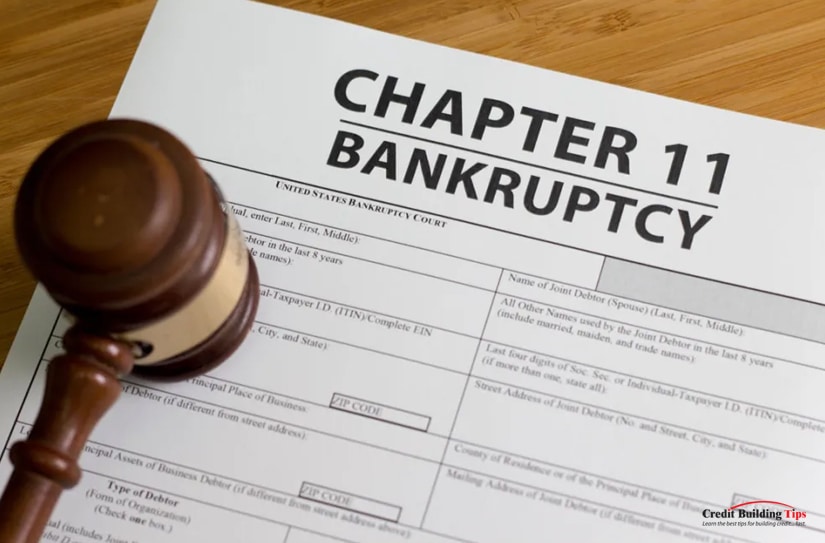
"Chapter" simply refers to which section of the U.S. bankruptcy code governs the situation. Different chapters are used in different situations. There are actually six different chapters of bankruptcy, though 99.99% of the people reading this will only ever likely be subject to two of them. The six are:
This is the most common kind of bankruptcy for individuals. In it, you go before the courts and declare that you cannot pay your debts. A meeting of creditors is called wherein you are grilled about your assets and financial situation, and a determination is made about what debts cannot be removed, what debts you want to reaffirm (like a car loan, to keep your car), and what debts you need to be removed if possible.
At the same time, the judge will go over your existing assets and determine what you can keep and what you should sell to pay your debts. This can leave you with very little, though many states have specific laws about what you have to be allowed to keep (like basic shelter), and any debts left over are removed.
 Chapter 7 bankruptcies stay on your credit report for 10 years, and you can't file for another one for 8 years.
Chapter 7 bankruptcies stay on your credit report for 10 years, and you can't file for another one for 8 years.The chapter 13 bankruptcy process reorganizes and restructures your debt, establishing two things: a strict budget you have to adhere to for your spending and a payment plan to repay the debts you can. It's very strict but allows you to keep your assets in general, rather than liquidating everything you have to pay your debts.
 This kind of bankruptcy is the second-most common for individuals, stays on your credit report for 7 years, and has a 2-year "cooldown" before you can file for it again.
This kind of bankruptcy is the second-most common for individuals, stays on your credit report for 7 years, and has a 2-year "cooldown" before you can file for it again.Chapter 11 is common to hear about because it's the kind of bankruptcy that companies file to protect themselves from their bad decisions. Unless you're a business owner, you don't need to concern yourself with this chapter.
The remaining three chapters are specific kinds of bankruptcy for narrow groups of people. They are:
As you can see, there's a pretty low chance you'll have to deal with any of these, so we're not covering them in detail here. If you have a specific need to learn more, though, feel free to reach out or leave a comment, and we'll do our best to help. Remember, though; we aren't bankruptcy lawyers, so we can only offer so much guidance.
When you declare bankruptcy, as you might expect, your credit score will take a hit. It is one of the most significant detrimental hits you can take.
 Remember, your credit score is a rating based on many factors, but it's aimed at telling creditors how well you can pay your debts. Declaring bankruptcy is a straight-up admission that you can't pay your debts. No matter how good your credit score was before your declaration, your credit score will take a huge hit.
Remember, your credit score is a rating based on many factors, but it's aimed at telling creditors how well you can pay your debts. Declaring bankruptcy is a straight-up admission that you can't pay your debts. No matter how good your credit score was before your declaration, your credit score will take a huge hit.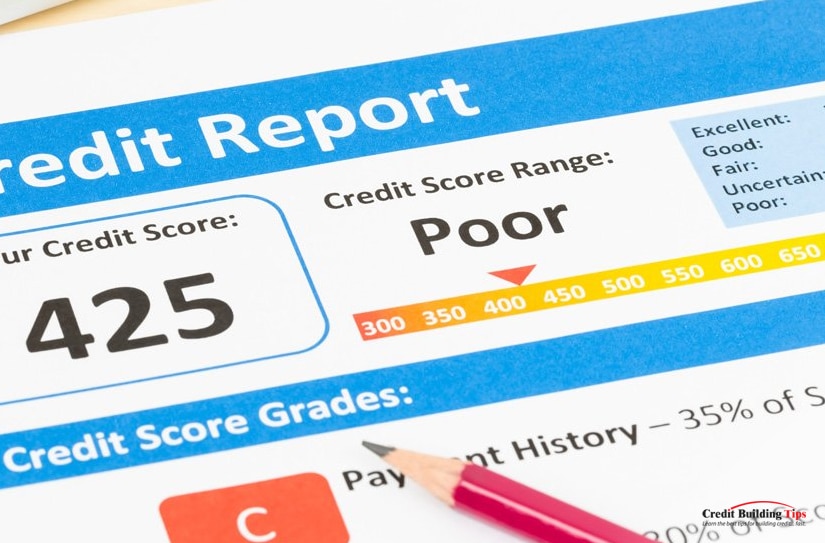
Various reports and records indicate that if your credit score is good – 700 or higher – declaring bankruptcy can cause it to drop by 200 points or more. That's a lot! If your credit score is lower, you'll see a drop of around 150 points. It's an extremely substantial hit, and since bankruptcies stay on your credit report for 7-10 years, that hit will follow you for a long time.
In truth, different kinds of bankruptcy can have different levels of impact on your credit report and score. This is because the determining factor is how able you are to pay back your debts. In a chapter 7 bankruptcy, you are paying little or nothing towards your debts, and most of your debts are wiped away. The creditors need to take that hit, and they hate doing that. So, a Chapter 7 bankruptcy is going to be worse.
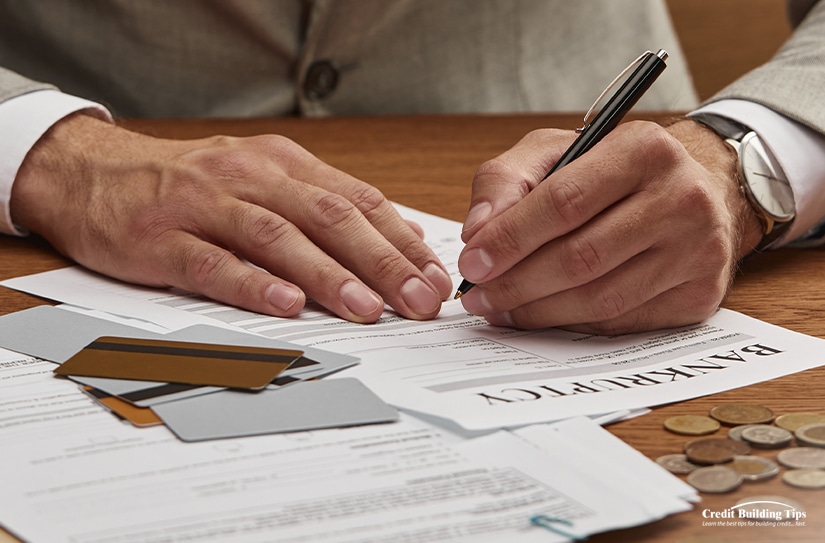
Meanwhile, a Chapter 13 bankruptcy, while still devastating, isn't quite as bad. This is because the core of a Chapter 13 declaration is a reorganization of your finances, such that you can then pay what you can to furnish your debts. The impact on your credit will still be severe, but it won't be quite as severe as with a Chapter 7 declaration.
Let's say that, 7-10 years ago, you had severe unexpected medical issues and struggled to pay your medical debts. Disregarding commentary about the absolute failure of the medical system to allow this, you end up needing to declare bankruptcy to get out from under those crushing debts. Since then, you've spent time recovering, both physically and financially. What happens to your credit score?
 Well, assuming you haven't fallen into old habits and racked up even more debt you can't pay, chances are that your credit score has slowly been improving over the intervening 7-10 years. Good financial habits, lower amounts of debt, and consistent repayments as applicable according to a bankruptcy filing can all help improve your score, though it won't reach the heights it was before for quite a while.
Well, assuming you haven't fallen into old habits and racked up even more debt you can't pay, chances are that your credit score has slowly been improving over the intervening 7-10 years. Good financial habits, lower amounts of debt, and consistent repayments as applicable according to a bankruptcy filing can all help improve your score, though it won't reach the heights it was before for quite a while.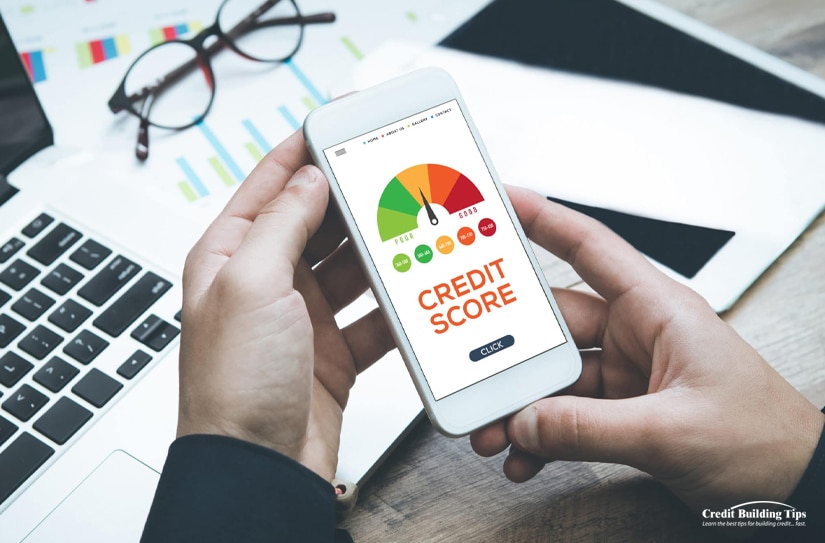
When your bankruptcy finally falls off of your credit report, you will see some increase in your score. However, this might not be a "full" restoration for a few reasons.
Generally, when your bankruptcy falls off of your credit report, your score will increase, usually by somewhere between 30 to 100 points. This may seem like a huge increase, but it's still relatively small compared to the decrease that the bankruptcy caused in the first place.
It's entirely possible to recover to your previous score or even get a better score than before, but it will likely take quite a number of years. You need to not only let your previous debts, defaults, and bankruptcy age out; you need to establish a history of positive payments in the intervening time. You may be looking at 15-20 years before you can truly be considered recovered.
Yes, of course. However, some of the options available to most people will not be available to you. For example, here are several tips given to improve credit scores:
These are not generally available to you. When you declare bankruptcy, many of your existing lines of credit will be closed, and you will generally be denied for higher credit limits (since you've proven you can't handle what you have now). Likewise, opening a new line of credit for a balance transfer will generally be denied. Indeed, with a lower credit score and a bankruptcy on file, you will be denied for most lines of credit, and the ones you can get will have much worse terms.

If this seems unfair, well, it kind of is.
That said, there are still ways to improve your credit score even while your bankruptcy is still on file.
You can always work to improve your score, no matter what your financial situation may be.
Defaulting on a loan means violating terms and not paying it. When you default, the creditor may pursue you for payments, and they can even sue you for the balance. Alternatively, they can sell the debt to a collection agency and let them worry about it.
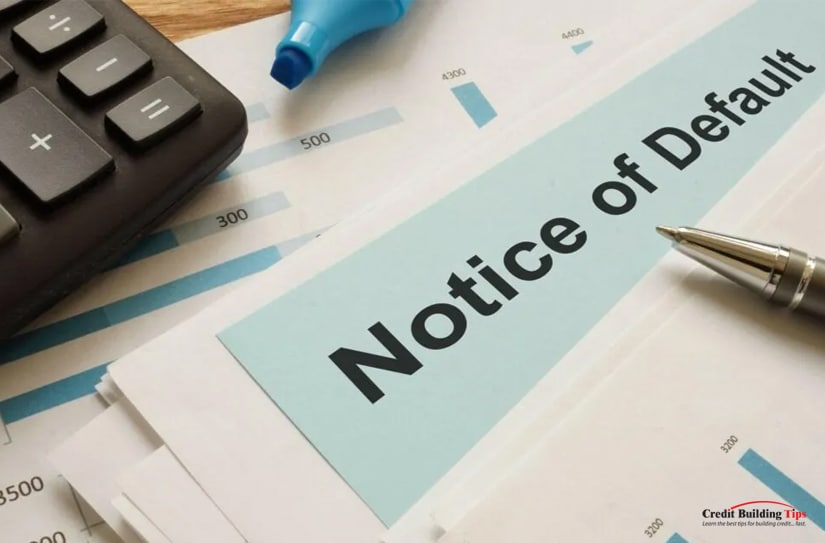
Most people default on their debts prior to declaring bankruptcy. In fact, not defaulting may reflect poorly on you, as you're "jumping the gun" on declaring bankruptcy rather than giving your situation as much time as possible to remain solvent.
If you can default on one or two debts and successfully pay the others, you will likely be in a better position regarding your credit score than you would with a full bankruptcy. The hit you take from declaring bankruptcy is just that bad.